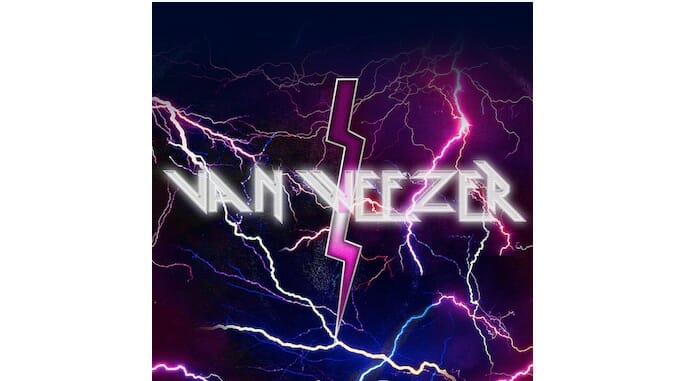Van Weezer Only Partially Delivers on False Promises
Weezer continues to play it safe, as if they have much to lose

Weezer’s Rivers Cuomo referred to his 1996 album Pinkerton as “a sick album, sick in a diseased sort of way” in a 2001 interview with Rolling Stone, and understandably so. The songs were deeply personal, ranging from Cuomo’s sexual fantasies to his experiences with imposter syndrome as a Harvard student. It was ugly, rife with detail, and soon became a beloved album heralded for its authenticity. Despite this, Weezer has learned from the trauma that comes with baring that much of oneself on an album, and their subsequent releases have been hit or miss.
In the nearly three decades since then, Weezer has cemented themselves as one of the few rock bands with some steam left in them, appealing to several generations with their infectious hooks and stunning melodies. They studied the power-pop book, and the legacy left behind by their beloved producer Ric Ocasek of The Cars, to build their framework. Their winning streak started with 2014’s Everything Will Be Alright In The End and ended with 2017’s Pacific Daydream, eventually redeeming themselves with their orchestral OK Human. Then, they reminded everyone about their metal album Van Weezer.
“Metal” should be used lightly, and press materials ping-pong back and forth between “hard rock” and “metal” as a driving influence behind this long-awaited record. This isn’t to be unexpected, as a long-haired Cuomo was previously in a progressive metal band called Avant Garde, and Weezer performed under the name Goat Punishment and did a number of live Nirvana covers. So why is it so hard for them to get the heaviness right?
At its best, Van Weezer is a Weezer album, for lack of a better term. The soaring guitar riffs are coated in nostalgia, reminiscent of licks present on The Green Album and Maladroit, the latter of which received the most comparisons to Van Weezer. Each song sounds straight out of a stadium. It feels like second nature to clap and stomp. Even the few Easter eggs put into the album to appeal to classic rock fans, such as the Eddie Van Halen’s “Eruption” briefly being referenced in the intro to “The End of the Game,” or the interpolation of Ozzy Osbourne’s iconic “Crazy Train” on “Blue Dream,” are well done, but that feels like the extent of this album’s ambitions, giving the bare minimum in mainstream rock references without much else to show for it.
-

-

-

-

-

-

-

-

-

-

-

-

-

-

-

-

-

-

-

-

-

-

-

-

-

-

-

-

-

-

-

-

-

-

-

-

-

-

-

-








































